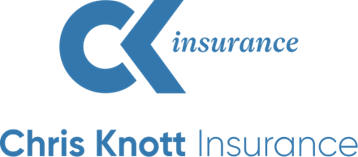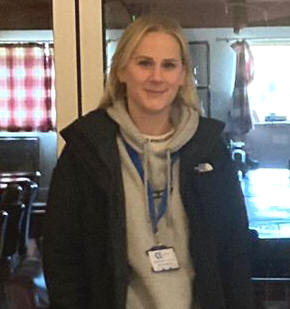| |
Run for cover...
 We all
know from experience that unexpected things can happen when dogs are involved, and
that's why it's important to have the right insurance cover whether you are a KC society or independent training group,
private trainer, show organisers or venue to hire. Fern Kardamash of specialist broker Chris Knott Insurance explains what
insurance
dog agility clubs need and why? We all
know from experience that unexpected things can happen when dogs are involved, and
that's why it's important to have the right insurance cover whether you are a KC society or independent training group,
private trainer, show organisers or venue to hire. Fern Kardamash of specialist broker Chris Knott Insurance explains what
insurance
dog agility clubs need and why?
Running a dog agility club
can be fun and incredibly rewarding, but it
can also have its challenges. Whether you offer training, run competitions or
both, there are risks that could lead to injury, damage or loss. Someone
at one of your shows, workshops or training sessions could
trip and
could trip and
injure themselves. There could be claims for dog bites, damage to
your venue and/or theft of equipment or money to be considered.
In these
instances, you could find that your club or group are faced with
expensive consequences. You may need to pay damages, replace lost or damaged
items or even manage a legal challenge.
For these reasons, you need to protect yourself, your
agility club, your members and your volunteers. The right insurance will give you peace of mind.
If something does go wrong, you can rest assured that you are
financially protected.
Insurance
can be confusing and more than a little daunting, so here's a list of things you
need to think about before you take out a policy.
What cover do you need?
It helps to have an idea of what insurance
you need, although a good insurer or broker will be able to give you lots of
helpful guidance. The right
insurance will depend on your size, activities and location, but you may want to
consider the following types of covers:-
-
Public Liability:
This financially protects you should a club
member or member of the public be injured or their property damaged. For
instance, if a club member's dog bites an attendee at a show while taking
part in an activity, the injured person could make a claim against the
member. The exact amount of cover you need will depend on many factors. If
you're renting out land for your competition, the landowner may specify a
certain level of cover.
-
Employers' Liability:
If you employ someone in your dog agility
club, you legally must have this cover in place. It also protects any
volunteers you have. If someone is injured or made ill while carrying out work
for you, this will financially protect you should someone make a claim. For
example, if a volunteer hurts themself while setting up the agility
equipment, they could make a claim against the club there were volunteering
for.
-
Equipment Cover:
In case you need to replace agility equipment that is stolen or damaged. Cover
can also be extended to cover equipment that is kept outside, such as at a
show or secure training field. (However, terms apply)
-
Trusted Persons Cover: This
financially protects your club's directors, partners, trustees and committee
members against claims of negligence and breaches of duty or care.
-
Professional Indemnity:
If you offer training or advice on dog behaviour, this is a good cover
to have. It will cover the cost of compensation, damages and legal fees
should a claim be made against your club.
-
Trophy and Cup Cover: If you host agility shows,
inter-club leagues or annual in-house competitions or have annual awards, you may have some trophies
at your venue. Alternatively, some of your members could
house trophies they've won at their premises. Either way, this insurance will
cover you should they be lost or stolen.
 Why
use an insurance broker? Why
use an insurance broker?
Because every dog agility club is different,
going to someone who understands the dog agility scene and
has worked with clubs before is a good idea as it can be a challenge finding
your way through the various types of policy. Choosing the right insurer or broker
who can guide you through the various options
can be a real asset.
Look for an
advisor who listens, asks questions and really gets to know your group. They
have the right experience to guide you as to what kind of insurance you'll need and they can help should you need to make a claim.
You
can also ask friends at other clubs about their providers and their experiences
with them. Take a look at some of their reviews, case studies or testimonials.
Be sure to weigh up whether the insurer or broker
answers your questions clearly and can give you real-life examples which
illustrate when the insurance would come in handy.
Here are
some questions to ask a potential broker:-
-
Are
tailored policies available?
Dog agility insurance is not necessarily something that you
can get as an off-the-shelf product. For instance, typical Business Insurance
may not quite fit your needs. It's therefore a good idea to chat to insurers
about whether they can tailor your insurance so that the policies are more
relevant to your dog agility club.
-
What is the standard cover?
When you discuss your insurance cover with an insurer or
broker, it's a good idea to find out what cover comes as ‘standard.' The
insurer may have a package of policies to fit dog agility clubs, but you may
find that you need to purchase extra policies to ensure you have everything you
need. For example, Public Liability Insurance may come as standard, but Trophy
Cover may not.
-
How much cover do you need?
Some policies have different levels of cover, which can be
adjusted to suit your individual dog agility club. For instance, Public Liability Insurance usually starts at
£1 million. This means that if a claim was made, you would get up to £1 million
in financial support. This would be used to pay damages, compensation and legal
fees. However, this can be extended to £10 million if you feel
your club's activities are riskier. If you're unsure about how much cover you need, a good
insurer or broker will be able to guide you.
-
Claims support
If you're opting to work with an insurance broker, you may
want to check to see if they offer any claims support. This means that they can
help you through the claims process and possibly even liaise with your insurer
for you. This may help you to get a more positive outcome if you make a claim.
-
Ask about exclusions
All insurance policies will have some kind of exclusion or
limit on their cover. For instance, they may specify that a dog agility event
can only go up to a certain size or that they only cover a specific number of
members. Always make sure that you ask about these limits before you
buy your policy so that you can be confident that you have the right cover in
place.
-
Check the fees
Some insurers will charge you for cancelling or amending
your insurance policies. Check what these fees are likely to be, just in case
you need to do this.
Last
word
Insurance provides peace of mind. It is there to financially protect
you should the worst happen.

 About
the author... About
the author...
Fern Kardamash, a
member of independent insurance broker Chris Knott
Insurance's dedicated Dog Businesses Insurance team, has grown up with dogs in her life.
She
specialises in finding
the right policies for dog clubs, dog trainers and other canine businesses.
Fern and the rest of the team offer a personalised service
which means that they get to know you and your club to find you exactly the
right cover.
Chris Knott
Insurance was founded in 1983 and is based in Hastings, East Sussex.
To find out more,
visit the Chris Knott Insurance
website or ring 01424 205005.
First published
4th October 2024
| |
|